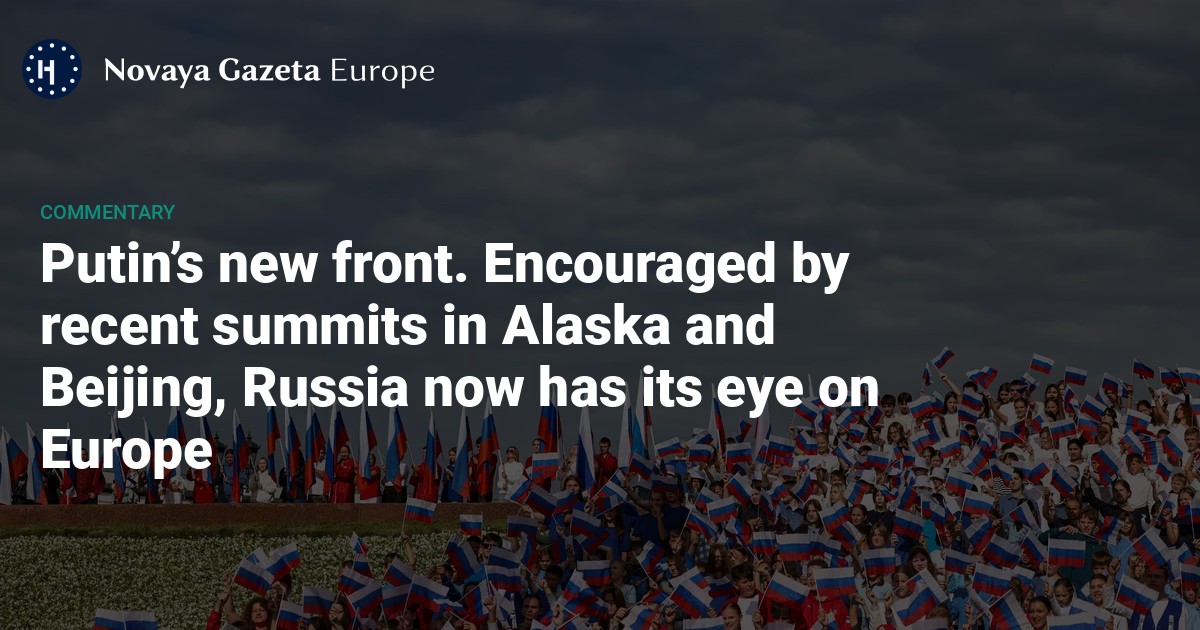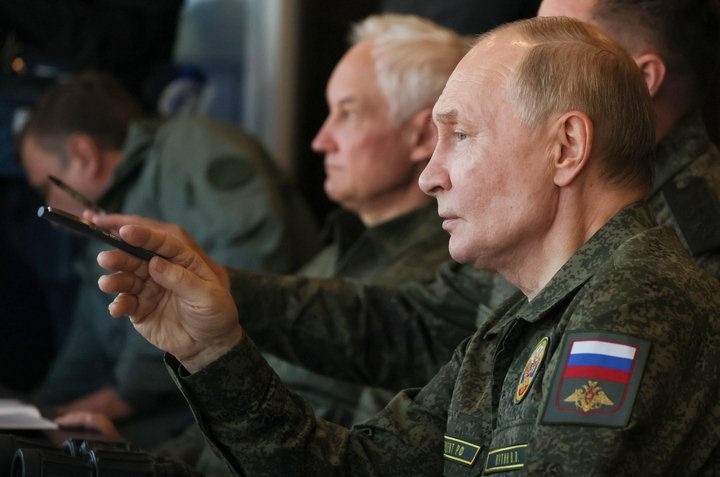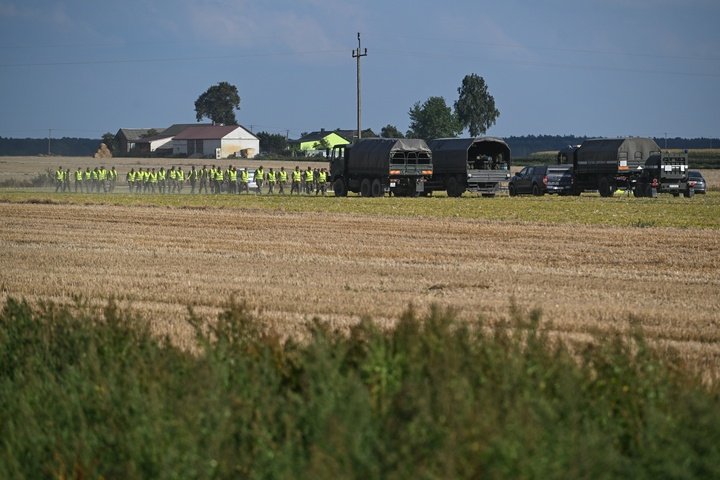


Before it invaded Ukraine, the Russian military carried out a number of provocations, which, in keeping with classical military propaganda methods, were supposed to frame Russia as an innocent victim of the Kyiv regime’s aggression.
Most notably, on 21 February 2022, the Russian Defence Ministry announced that it had destroyed two Armed Forces of Ukraine (AFU) armoured personnel carriers that had made an incursion into southern Russia’s Rostov region. The provocations were prepared in haste, made little impression on the world, and have largely been forgotten today, almost as if the perpetrators didn’t care that much whether they were believed or not. Indeed, the Russian military didn’t even bother to fake the Ukrainian incursion using armoured personnel carriers used by the AFU. However, the scale of the provocation was clear evidence that the decision to invade had already been taken.
In recent days, the EU and NATO have faced a significant number of Russian provocations. First, some 19 Gerbera reconnaissance drones entered Polish airspace, which, given their sheer number, didn’t appear to have happened by accident. Then, over the weekend, Estonia announced that three MiG combat aircraft, which are used to fire Kinzhal ballistic missiles at Ukraine, entered its airspace for 12 minutes, enough time for the planes to fly over 500 kilometres. Next, two Russian fighter jets flew at ultra-low altitude over a Polish drilling platform in the Baltic Sea, while, simultaneously, some of Europe’s largest airports were paralysed by software failure, which might have been a Russian cyberattack.

Vladimir Putin supervises the Russian-Belarusian joint military drills at the Mulino training ground, in central Russia’s Nizhny Novgorod region, 16 September 2025. Photo: EPA / MIKHAIL METZEL
The manual for dictators wishing to justify foreign invasions was written in the 20th century, chiefly by Hitler and Stalin. Poles know only too well that World War II was precipitated by a group of Nazis dressed in Polish uniforms attacking a German radio station in the German border town of Gleiwitz — now Gliwice, in Poland.
That staged incident allowed Goebbels to claim that Germany was under attack and would respond in kind. Stalin then used the “collapse of the Polish state” to justify his own invasion of the country, citing the need to protect Ukrainians and Belarusians living in the east of the country. Likewise, the Mainila incident, when the USSR was allegedly shelled by Finland, was used as the pretext for the Soviets to launch the Winter War. The only difference now is the technology involved: drones, hackers or an ominous fly-by by fighter-bombers.
After the disastrous early years of the war for the aggressor, when Ukraine inflicted a number of humiliating defeats on the Russian army, and Putin had to resort to declaring deeply unpopular partial mobilisation, the dictator in the Kremlin is now clearly more optimistic and believes he is winning the war.
The key factor upon which Putin’s optimism rests is not so much success by the Russian army, which still found itself unable to break through the Ukrainian front during its summer offensive, as the inconsistent policy messaging coming from the Trump administration.
The US saying it will eschew security guarantees for its European NATO allies in the midst of the largest war in Europe since World War II has only emboldened Putin. Russian planes and drones did not appear en masse in EU skies while the US served as the chief deterrent to an expansion of Russian aggression. But his renewed friendship with US President Donald Trump has given Putin something of a free rein.
The US ceasefire proposal, which had been gathering dust in the Kremlin for several months, has now been rejected by Moscow, which says it must eliminate the elusive “root causes” of the Ukraine conflict. The August summit in Alaska and an invitation from Chinese President Xi Jinping to attend a giant military parade in Beijing earlier this month showed the Russian dictator that he has nothing to fear: he has a reliable partner in China, and the West is no longer united against him. All of which has made Europe an acceptable military target.

Polish servicemen and emergency services inspect the crash site of a Russian drone, 10 September 2025. Photo: Wojtek Jargiło / EPA
The social situation in Russia itself also makes ending the war a challenge for the Kremlin. The “special military operation” was meant to be a short, sharp military campaign mirroring the successful occupation of Crimea in 2014. The transformation of Russia into a militarised society has gone dangerously far, both in terms of increased military spending and the expectation of those who support the war that they’ll receive money and be afforded social standing for their willingness to commit war crimes.
Putin’s decision to expand the reach of his aggression may be less a sign of confidence that he is winning, and more due to his fear of what might happen should Russian society no longer be placed on a wartime footing. Dictators who start wars rarely imagine their actions will spell the end of their regime, and yet they often find that permanent belligerence is needed to shore up their grip on power. There is now no internal or external deterrent to stop Putin from trying to attack Europe.
Military analysts and political leaders have repeatedly warned that Europe should be prepared for direct military conflict with Russia in the coming years. While it’s widely accepted that Putin lacks sufficiently combat-ready forces to attempt a ground invasion of European territory, now that drones and aircraft have made successful incursions, perhaps he’ll gamble on going one step further. Drones over Poland could be the first volleys in a future war for which Europe is ill prepared.
The entire point of creating a provocation is, of course, for European countries to respond, thereby handing Russia an excuse to open up a new front.
The EU has discussed what to do about Russian aircraft entering its airspace. Czech President Petr Pavel says they should be shot down. Officials in Estonia, meanwhile, have said that the NATO consultations within the framework of Article 4 of its charter are adequate.
The entire point of creating a provocation is, of course, for European countries to respond, thereby handing Russia an excuse to open up a new front. Conversely, the experience of appeasing dictatorships on the eve of World War II reminds us that being willing to make concessions only whets the appetites of those who have already elected to go to war.
In recent months, amid expectations of an imminent truce, much has been said of security guarantees for Ukraine. Finnish President Alexander Stubb has said that this must mean Europe being prepared to fight Russia in the event of further aggression. Finland has learned the lessons of its 20th century history well, but whether or not the European Union is capable of passing the same test is another question altogether.
The Russian government has banned independent media. We were forced to leave our country in order to keep doing our job, telling our readers about what is going on Russia, Ukraine and Europe.
We will continue fighting against warfare and dictatorship. We believe that freedom of speech is the most efficient antidote against tyranny. Support us financially to help us fight for peace and freedom.
By clicking the Support button, you agree to the processing of your personal data.
To cancel a regular donation, please write to [email protected]
VPNovaya
Help Russians and Belarusians Access the Truth

